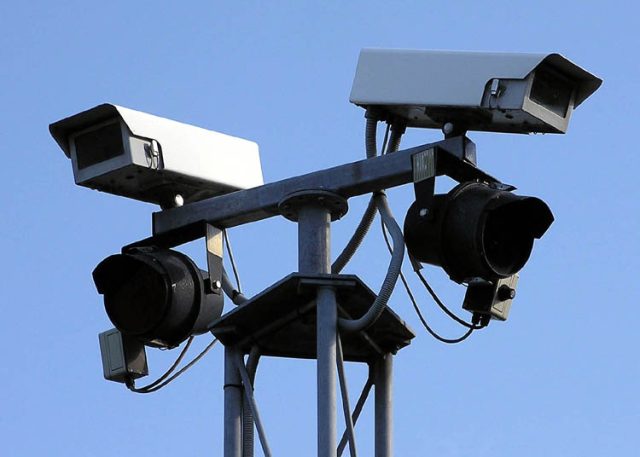
A 91-year-old civil liberties campaigner, John Catt, is taking his fight to have police surveillance records of his peaceful participation in protests deleted to the European Court of Human Rights (ECHR).
Catt is classified by UK police as a "domestic extremist," even though he has no criminal record. His name was added to a secret national database run by the UK's National Public Order Intelligence Unit. It contains details of his attendance at over 80 lawful demonstrations with his daughter, including their appearance and slogans on their T-shirts.
The police seem to have been especially troubled by Catt's habit of sketching at the demonstrations. As The Guardian reported in 2010:
Catt's artistic endeavours received particular scrutiny. 'John Catt sat on a folding chair by the southern most gate of [the arms factory] EDO MBM and appeared to be sketching,' states one of several logs. 'He was using his drawing pad to sketch a picture of the protest and police presence,' said another from 10 March 2006. A separate report, about his sketch of a Guantánamo Bay detainee, noted: 'John Catt was very quiet and was holding a board with orange people on it.'
The police placed a marker against the registration number of Catt's car on the database, which triggered an alert each time it passed under an automatic number plate recognition (ANPR) camera. The Catts were also tracked by police officers for days on end, and their movements and meetings recorded in detail.
Catt has been fighting to have the records destroyed for the last six years. In 2013, three senior judges ruled that the records should be deleted. The police appealed, and in 2015 the UK's supreme court agreed that the police had lawfully kept a record of Catt's activities, and therefore did not need to remove them.
Explaining his latest legal move, Catt told The Guardian: "Denied justice in Britain, I am now taking my fight to Europe in the hope that if successful, the case will set a benchmark in regulating what information the state is legally entitled to collect and retain about lawful protesters, and where unlawfully retained, it should be destroyed."
In a piece written for The Guardian in 2012, Catt said that he had been protesting for 70 years. He even protested when he was in the RAF during World War II, which saw him confined to barracks twice as punishment. He wrote: "I would like to see the reversal of the erosion of civil liberties in this country, where the police state is assuming the role of perpetual inquisition; it destroys faith and trust between the individual and the state."
In a separate legal action, six members of the National Union of Journalists are also challenging the practice of keeping files on innocent members of the public. Both John Catt and the six journalists are being represented by Shamik Dutta, from Bhatt Murphy solicitors.
Dutta told Ars in an e-mail:
The Supreme Court has agreed with Mr Catt that there has been an interference with his rights under Article 8 [of the European Convention on Human Rights]. The key legal issues will therefore be whether the interference with Mr Catt’s right to respect for his private life—and the operation of the database as a whole—is justified as both 'in accordance with the law' and 'necessary in a democratic society' pursuant to Article 8(2) [of the European Convention on Human Rights].
If Catt wins his case at the ECHR, it could have major implications. Dutta told Ars: "The judgment could set limits—all over Europe—on what information states can retain about citizens’ lawful activities."
Listing image by Adrian Pingstone
reader comments
48